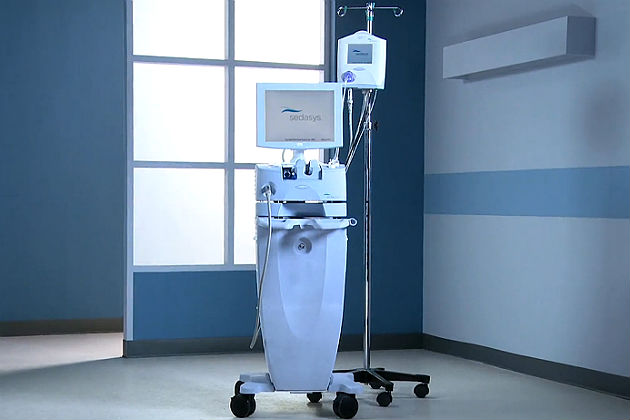In a previous blog post, the idea of machines taking over the job of an anesthesiologist was discussed. Although we believed this was far off, a few new machines were beginning to gain popularity in the medical world. Just recently, however, sales of the Sedasy machine, made by Johnson & Johnson, have been stopped. Johnson & Johnson says halted sales are due to poor sales and cost cuts within the company which means the concept of facilities using machines over anesthesiologists is still far off.
To refresh your memory, the most popular of these devices is called Sedasys, an open-loop system that can administer the initial dose of anesthesia a patient needs, favoring machines over anesthesiologists. The machine was developed to be used for patients undergoing endoscopies and colonoscopies. The dosage of medicine is predetermined by the patient’s weight and age, and the machine can reduce or stop drug delivery depending on the patient’s condition. The machine, however, cannot decide alone how much anesthesia the patient needs, and the dosage can only be increased by the doctor or nurse that is monitoring in case of emergencies. This more conservative approach is what offered comfort to regulators and helped win the approval of the FDA.
Johnson & Johnson believed, at first, that the Sedasys system would be a cost efficient way to administer anesthesia, but the machine was quickly fought against by many medical professionals, especially anesthesiologists. Many were concerned that choosing machines over anesthesiologists would begin a less humanistic approach, which many people did not like. Safety concerns were also an issue. “While the Sedasys System can safely administer sedation for healthy patients undergoing the procedures mentioned, emergencies can and do occur, even during the simplest procedures and with the healthiest patients,” Jeffrey Apfelbaum, co-chair of the ASA committee on the Sedasys machine, said in a 2015 interview with Medscape. “Additionally, many have concerns for the safety of patients if device operators do not remain in strict compliance with the limitations imposed by the FDA on the use of the device.”
While choosing the Sedasys machine over anesthesiologists is no longer an option as they are no longer being produced or sold, there are still others on the market, and new machines may begin to pop up. However, it still seems that something like this will never be accepted universally by medical professionals. As the fastest growing Anesthesia Management Solution in the midwest, Steel City Anesthesia offers more than just anesthesia services. We strive to provide exceptional patient satisfaction and meet anesthesia needs with a personal touch that will never be able to be replaced by a machine.

